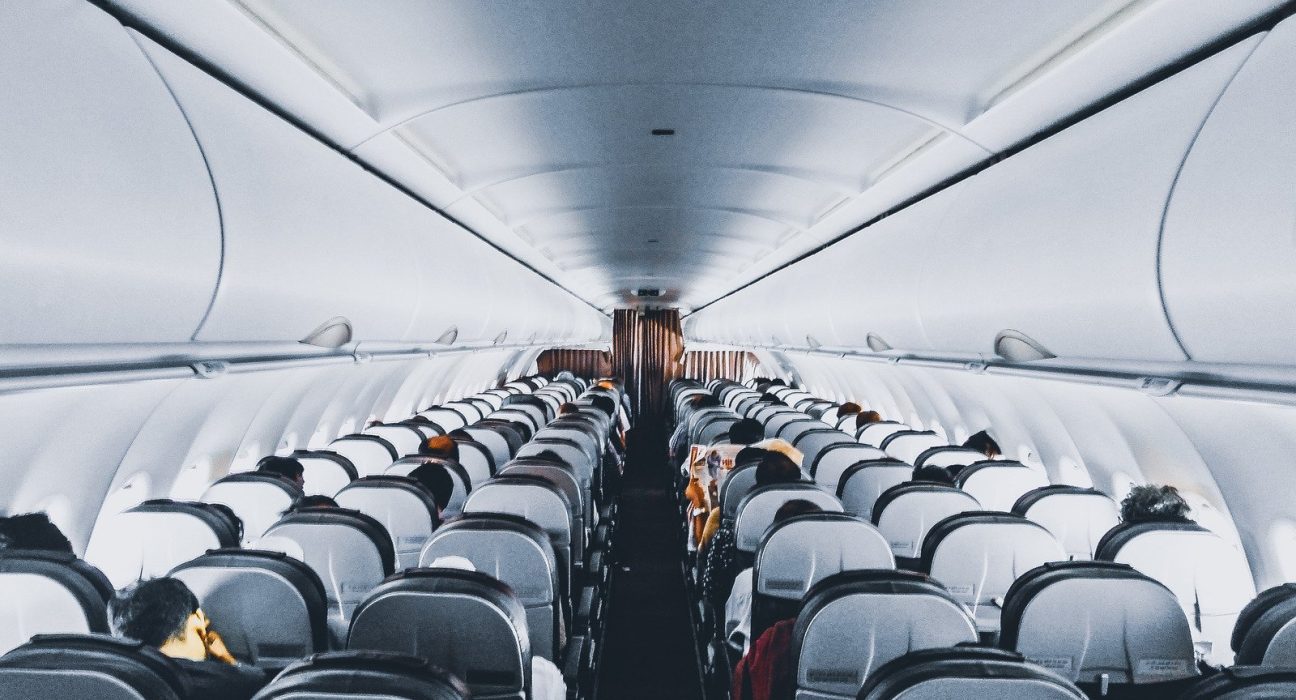Are you tired of feeling groggy and out of sync after a long-haul flight? Jet lag can wreak havoc on your body, leaving you feeling fatigued and disoriented for days. But fear not, there are ways to avoid it! In this blog post, we’ll explore the causes of jet lag and provide tips on how to prevent it during your travels. From adjusting your sleep schedule beforehand to staying hydrated during the flight, we’ve got you covered. So sit back, relax, and read on to learn how to beat jet lag once and for all!
What Causes Jet Lag?
Jet lag is a common phenomenon experienced by travelers who cross multiple time zones. It occurs when our internal body clock, or circadian rhythm, becomes disrupted due to sudden changes in daylight and darkness cycles.
Our bodies are accustomed to a certain schedule of sleeping and waking based on the natural cycle of light and dark. When we travel across several time zones, this cycle is thrown off balance. Our internal body clock may still be set to the previous timezone, while our external environment has changed.
The severity of jet lag depends on several factors such as direction of travel (eastward vs westward), number of time zones crossed, age, health status and individual differences in sleep patterns.
Symptoms can range from mild fatigue and insomnia to more severe effects such as headaches, upset stomachs, irritability and difficulty concentrating.
But don’t worry – there are ways to prevent jet lag from taking over your travels! See below for tips on how you can avoid it during your next long-haul flight.
How to Avoid Jet Lag on a Flight
Jet lag can be a major inconvenience when traveling long distances. It can leave you feeling groggy, disoriented and exhausted. However, there are some steps that you can take to try and minimize the impact of jet lag on your body.
One of the first things you should do is adjust your sleep schedule in advance. If you’re flying eastward, start going to bed earlier than usual a few days before your trip. For westward flights, go to bed later instead.
It’s important to stay hydrated throughout your flight as well since dehydration can worsen symptoms of jet lag. Drink plenty of water and avoid alcohol or caffeine which can dehydrate you further.
Another tip is to get up and move around during the flight if possible. Sitting for extended periods can cause stiffness in muscles and joints which will make it harder for your body to readjust once you reach your destination.
Consider adjusting your watch or phone clock as soon as you board the plane so that mentally, it feels like time is passing more quickly during the flight.
By following these simple tips, hopefully, you’ll be able to arrive at your destination feeling rested rather than disorientated from jet lag!
Tips for Recovering from Jet Lag
Recovering from jet lag can be a daunting task, but there are several tips and tricks that you can use to make the process easier. One of the most important things to do is to get plenty of rest before your flight so that your body is well-rested and prepared for the journey ahead.
Once on board, try to adjust your sleep schedule according to your destination’s time zone. This means sleeping when it’s nighttime at your destination and staying awake during daylight hours. It may also help to limit caffeine and alcohol intake as these can disrupt sleep patterns.
Upon arrival, expose yourself to natural sunlight as much as possible during the day which helps regulate circadian rhythms. If you need a nap, keep it short (no more than 20-30 minutes) and avoid napping too close to bedtime.
It’s also important to stay hydrated by drinking plenty of water throughout the day while avoiding sugary drinks like soda or coffee.
Give yourself some time once you arrive at your destination before jumping into work or sightseeing activities; this allows for sufficient recovery time without overwhelming yourself with too many tasks all at once.
By taking these steps towards recovery from jet lag after a long-haul flight, travellers will feel better rested upon arriving at their destination – ready for whatever adventure awaits!
Tips for Avoiding Jet Lag When Travelling
Jet lag is a common problem that affects many travelers, especially when traveling across time zones. However, there are some tips and tricks you can use to avoid or minimize the effects of jet lag.
Firstly, it’s important to try and adjust your sleep schedule before you leave for your trip. This means going to bed and waking up at times closer to those in your destination timezone. You can also take short naps during the day leading up to your flight.
During the flight itself, try adjusting your watch or phone clock as soon as you board the plane. This will help you mentally prepare for the new time zone and adjust more easily.
Staying hydrated throughout the journey is also key in preventing jet lag symptoms such as headaches and fatigue. Avoid caffeine or alcohol on long-haul flights which can dehydrate you further.
Another tip is to move around frequently during the flight by taking walks around the cabin or doing simple exercises in your seat. This helps improve circulation which can reduce feelings of fatigue upon landing.
Once arriving at your destination try getting outside into natural light as much as possible since sunlight regulates our body clocks naturally. In addition, resist taking long naps immediately after arrival so that it’s easier for you to adapt quickly from jetlag symptoms!
Types of Jet Lag
Jet lag isn’t a one-size-fits-all condition. There are different types of jet lag, and each can affect travelers differently. The most common type is called phase delay, which occurs when you travel westward across multiple time zones. This type of jet lag causes difficulty sleeping at night and drowsiness during the day.
Another type of jet lag is called phase advance, which occurs when you travel eastward across multiple time zones. This type of jet lag causes difficulty staying awake during the day and waking up early in the morning.
The third type of jet lag is known as non-circadian rhythm disruption, which occurs when your body’s internal clock is thrown off by factors other than traveling across time zones. For example, if you work a night shift schedule or stay up all night studying for an exam, you may experience this type of jet lag.
Regardless of the type that affects you, there are strategies to minimize its impact on your health and well-being while travelling long distances by air.
How to Cope with Jet Lag
Jet lag can be a real pain when travelling long distances. The symptoms, which include fatigue, irritability and insomnia, can take days to subside. However, there are ways to cope with jet lag and make the recovery process quicker.
One of the key things you can do is adjust your sleep schedule before you travel. If possible try to gradually shift your sleeping pattern several days before the flight so that it’s closer to the time zone of your destination.
During the flight itself, stay hydrated by drinking plenty of water but avoid alcohol or caffeine as these will only dehydrate you further. You should also try to get up and move around on the plane every few hours as this helps improve circulation.
When you arrive at your destination don’t immediately go straight to bed if it’s daytime – instead try and get outside into natural light for a while which will help reset your body clock according to local time.
Be patient with yourself! Jet lag affects everyone differently so don’t expect an instant recovery. Take it easy for a few days until you feel fully rested and back in sync with local time zones.
How to Avoid the Sleep Disorders Caused by Jet Lag
One of the most unpleasant side effects of jet lag is experiencing sleep disorders. These can include insomnia, excessive daytime sleepiness, and disrupted sleep patterns. However, there are ways to avoid these issues and ensure a more restful trip.
Firstly, it’s important to establish healthy sleep habits before your flight. This includes getting enough quality sleep in the days leading up to your departure and avoiding caffeine or alcohol which can interfere with your natural sleep cycles.
During the flight itself, try to simulate time zones by adjusting your sleeping schedule accordingly. If you’re traveling eastward, try to stay awake for a few extra hours in order to fall asleep at an appropriate time in your destination’s time zone. Similarly, if you’re traveling westward, consider taking naps during the day so that you’ll be able to stay up later upon arrival.
It’s also important to create a comfortable sleeping environment while on board. Bring along earplugs or noise-cancelling headphones as well as an eye mask and neck pillow for added comfort.
Once you’ve arrived at your destination it’s essential that you continue practicing good sleep hygiene such as establishing regular bedtime routines and avoiding electronic devices before bed which can interfere with melatonin production.
By following these tips on how to avoid jet lag-related sleep disorders you’ll be able to arrive feeling refreshed and energized rather than groggy and disoriented.
Tips for Recovering from a Long-Haul Flight
Recovering from a long-haul flight can take time, but with these tips, you can speed up your recovery and get back to feeling like yourself again:
1. Stay hydrated: Drink plenty of water during and after your flight to keep yourself hydrated.
2. Eat well: Eating healthy foods will help you feel better faster and give your body the nutrients it needs to recover.
3. Get some exercise: Even light exercise like walking or stretching can help improve circulation and reduce muscle stiffness.
4. Rest when needed: Don’t push yourself too hard if you’re feeling tired or jet-lagged; allow yourself ample time for rest and relaxation.
5. Adjust slowly: If possible, try to adjust gradually to the new time zone by getting outside in daylight hours and going to bed at a reasonable hour.
By following these tips, you’ll be able to bounce back quickly from even the longest flights and enjoy your travels without being held back by jet lag!








